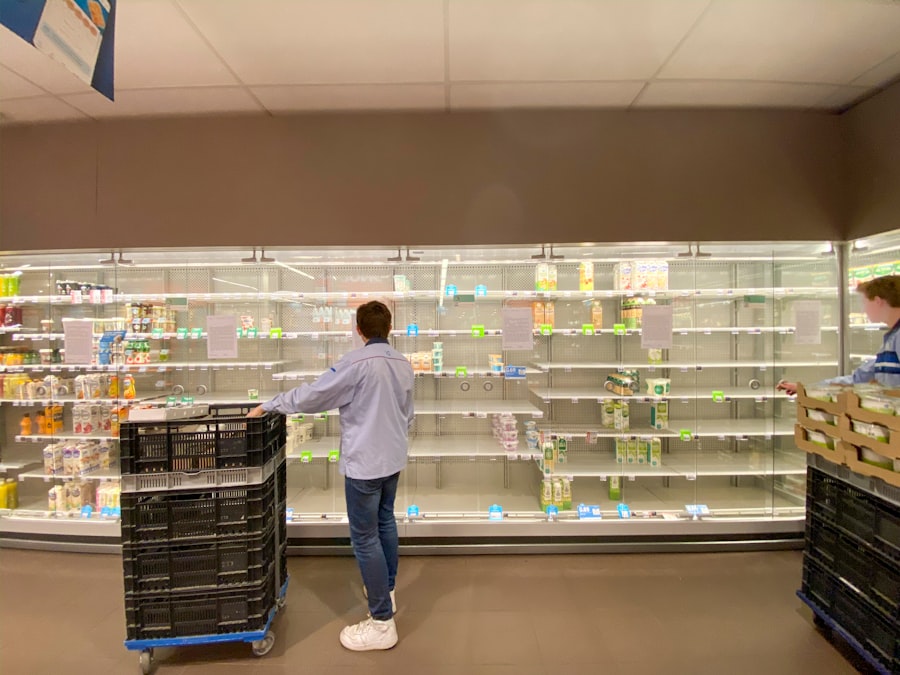The European Food Safety Authority (EFSA) is a pivotal agency established by the European Union to safeguard public health and ensure food safety across its member states. Founded in 2002, EFSA operates from its headquarters in Parma, Italy, and serves as a scientific advisor to the European Commission, the European Parliament, and EU member states. Its primary mission is to provide independent scientific advice and communicate on existing and emerging food safety issues, thereby fostering a high level of consumer protection.
EFSA’s establishment was a response to growing concerns about food safety in the wake of various food crises that shook public confidence in the food supply. By creating a centralized authority dedicated to food safety, the EU aimed to enhance the coherence and effectiveness of food safety policies across its member states. This agency plays a crucial role in ensuring that food products are safe for consumption, thereby protecting consumers and promoting public health throughout Europe.
Key Takeaways
- The EU Food Safety Authority (EFSA) is an independent agency responsible for assessing and communicating food safety risks in the European Union.
- The EFSA’s role includes providing scientific advice, risk assessment, and risk communication to ensure the safety of the food chain in the EU.
- The EFSA ensures food safety in the EU through rigorous scientific assessments, monitoring, and collaboration with national authorities and international organizations.
- The EFSA’s scientific expertise is derived from a multidisciplinary network of experts in various fields, including toxicology, microbiology, and nutrition.
- The EFSA engages in risk assessment and risk communication to inform policymakers, the public, and stakeholders about food safety issues and potential risks.
The role and responsibilities of the EU Food Safety Authority
The responsibilities of the EU Food Safety Authority are extensive and multifaceted. Primarily, EFSA conducts risk assessments related to food safety, which involves evaluating potential hazards associated with food products, including biological, chemical, and physical risks. This scientific assessment is critical for informing regulatory decisions and ensuring that food products meet stringent safety standards before they reach consumers.
In addition to risk assessment, EFSA is tasked with monitoring and analyzing emerging food safety issues. This proactive approach allows the agency to identify potential threats to public health before they escalate into crises. Furthermore, EFSA collaborates with national authorities and other stakeholders to develop guidelines and recommendations that enhance food safety practices across the EU.
By fostering cooperation among member states, EFSA helps create a unified approach to food safety that benefits consumers throughout Europe.
How the EU Food Safety Authority ensures food safety in the EU

EFSA employs a comprehensive strategy to ensure food safety within the EU. One of its key functions is to assess the safety of food additives, pesticides, and novel foods before they are authorized for use in the market. This rigorous evaluation process involves extensive scientific research and data analysis, ensuring that only safe products are permitted for consumer use.
By establishing clear safety standards, EFSA helps maintain consumer trust in the food supply. Moreover, EFSA plays a vital role in monitoring foodborne diseases and outbreaks across Europe. By collecting data from various sources, including national health agencies and laboratories, EFSA can identify trends and potential risks associated with food consumption.
This surveillance system enables timely responses to emerging threats, such as outbreaks of salmonella or listeria, thereby protecting public health and minimizing the impact of such incidents on consumers.
The scientific expertise of the EU Food Safety Authority
| Expertise Area | Number of Scientists | Research Projects | Publications |
|---|---|---|---|
| Food Contaminants | 25 | 10 | 50 |
| Food Additives | 20 | 8 | 40 |
| Food Allergens | 15 | 5 | 30 |
The scientific expertise at EFSA is one of its most significant assets. The agency employs a diverse team of scientists from various fields, including toxicology, microbiology, nutrition, and veterinary science. This multidisciplinary approach allows EFSA to conduct thorough assessments of complex food safety issues and provide well-rounded scientific advice to policymakers.
In addition to its internal expertise, EFSA collaborates with external scientific bodies and research institutions across Europe and beyond. This collaboration enhances the agency’s knowledge base and ensures that its assessments are grounded in the latest scientific research. By leveraging external expertise, EFSA can address emerging challenges in food safety more effectively and adapt its strategies to evolving scientific knowledge.
The process of risk assessment and risk communication by the EU Food Safety Authority
Risk assessment at EFSA follows a systematic process that includes hazard identification, hazard characterization, exposure assessment, and risk characterization. This structured approach ensures that all potential risks associated with food products are thoroughly evaluated before any regulatory decisions are made. The agency relies on robust scientific data and methodologies to inform its assessments, which are crucial for maintaining high safety standards in the EU.
Equally important is EFSA’s commitment to risk communication. The agency recognizes that effective communication is essential for building public trust and ensuring that consumers are informed about potential risks associated with food products. EFSA actively engages with stakeholders, including consumers, industry representatives, and policymakers, to disseminate information about its findings and recommendations.
By fostering transparency in its communication efforts, EFSA aims to empower consumers to make informed choices about their food.
The relationship between the EU Food Safety Authority and other EU institutions

The relationship between EFSA and other EU institutions is characterized by collaboration and mutual support. As an advisory body, EFSA provides scientific evidence to inform policy decisions made by the European Commission and the European Parliament. This collaboration is essential for developing effective food safety regulations that protect public health while also considering economic factors.
Furthermore, EFSA works closely with national food safety authorities in member states to ensure that EU-wide regulations are implemented effectively at the national level. This partnership facilitates the exchange of information and best practices among countries, enhancing overall food safety across Europe. By fostering strong relationships with various stakeholders, EFSA plays a crucial role in shaping a cohesive approach to food safety within the EU.
The impact of the EU Food Safety Authority on food regulations and policies
The influence of EFSA on food regulations and policies within the EU cannot be overstated. The agency’s scientific assessments serve as the foundation for many regulatory decisions related to food safety. For instance, when evaluating new food additives or pesticides, EFSA’s recommendations directly inform whether these substances are approved for use in the market.
Moreover, EFSA’s work has led to significant advancements in food safety legislation across Europe. By providing evidence-based guidance on emerging risks and best practices, EFSA has helped shape policies that prioritize consumer protection while also supporting innovation in the food industry. This balance between safety and progress is essential for maintaining a competitive food market in the EU while ensuring that public health remains a top priority.
The role of the EU Food Safety Authority in international food safety
EFSA’s influence extends beyond Europe as it engages with international organizations and partners to promote global food safety standards. The agency collaborates with bodies such as the World Health Organization (WHO) and the Food and Agriculture Organization (FAO) to share knowledge and best practices related to food safety issues. This international cooperation is vital for addressing global challenges such as foodborne diseases and ensuring that safe food practices are adopted worldwide.
Additionally, EFSA participates in international forums where it can advocate for science-based approaches to food safety regulation. By sharing its expertise and experiences with other countries, EFSA contributes to the development of harmonized standards that benefit consumers globally. This commitment to international collaboration underscores the agency’s recognition that food safety is a shared responsibility that transcends borders.
The transparency and accountability of the EU Food Safety Authority
Transparency and accountability are core principles guiding EFSA’s operations. The agency is committed to making its scientific assessments and decision-making processes accessible to the public. By publishing detailed reports on its findings and methodologies, EFSA ensures that stakeholders can scrutinize its work and understand how conclusions are reached.
Furthermore, EFSA actively engages with stakeholders through public consultations and workshops, allowing for input from various sectors of society. This inclusive approach not only enhances transparency but also fosters trust among consumers who rely on EFSA’s expertise for their food safety needs. By prioritizing accountability in its operations, EFSA reinforces its role as a credible authority in the field of food safety.
The challenges and controversies surrounding the EU Food Safety Authority
Despite its successes, EFSA faces several challenges and controversies that can impact its effectiveness. One significant challenge is balancing scientific rigor with public perception; while EFSA relies on evidence-based assessments, public concerns about certain issues—such as genetically modified organisms (GMOs) or pesticide residues—can lead to skepticism regarding its recommendations. Additionally, EFSA has faced criticism over potential conflicts of interest within its advisory panels or among its experts.
Ensuring that all assessments are conducted impartially is crucial for maintaining public trust in the agency’s work. Addressing these challenges requires ongoing efforts to enhance transparency, strengthen governance structures, and engage with stakeholders effectively.
The future of the EU Food Safety Authority and its role in ensuring food safety in the EU
Looking ahead, the future of EFSA will likely involve adapting to new challenges posed by an evolving global landscape. As consumer preferences shift towards more sustainable practices and alternative protein sources gain popularity, EFSA will need to assess these innovations’ safety implications thoroughly. Additionally, climate change may introduce new risks related to food production and supply chains that require proactive monitoring.
Moreover, as technology continues to advance rapidly—particularly in areas such as biotechnology—EFSA will need to stay at the forefront of scientific research to ensure that it can effectively evaluate emerging products and practices.
The European Food Safety Authority (EFSA) plays a crucial role in ensuring the safety of food within the European Union by providing independent scientific advice and communication on risks associated with the food chain. For those interested in learning more about the broader context of food safety and regulatory bodies, you might find this related article insightful. It delves into various aspects of food safety and the importance of regulatory frameworks in maintaining public health standards.
WATCH THIS! 👀Why These 30 American Products Are Immediately Illegal In Europe
FAQs
What is the EU Food Safety Authority?
The EU Food Safety Authority (EFSA) is an independent agency of the European Union that provides scientific advice and communicates on existing and emerging risks associated with the food chain.
What is the role of the EU Food Safety Authority?
The main role of the EFSA is to assess and communicate risks associated with the food chain, including food safety, animal health, and plant protection. It also provides scientific advice to support EU policies and legislation related to food and feed safety.
How does the EU Food Safety Authority operate?
The EFSA operates by conducting scientific assessments and research, collecting and analyzing data, and communicating its findings to the public, policymakers, and stakeholders. It also collaborates with national food safety authorities and international organizations.
What kind of risks does the EU Food Safety Authority assess?
The EFSA assesses a wide range of risks related to the food chain, including chemical contaminants, biological hazards, genetically modified organisms, and nutrition. It also evaluates emerging risks and provides guidance on risk management measures.
How does the EU Food Safety Authority ensure transparency and independence?
The EFSA ensures transparency and independence by following strict scientific procedures, engaging with stakeholders and the public, and maintaining a clear separation between its scientific assessments and any external influences. It also publishes its scientific opinions and data for public scrutiny.
